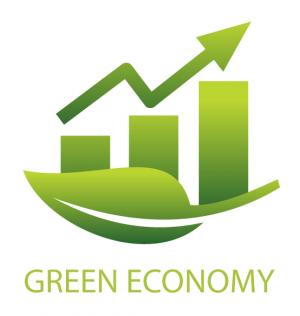Uganda Organic Agriculture Standards and Policies
Description
Source: World Resources Institute (2011) A Compilation of Green Economy Policies, Programs, and Initiatives from Around the World. The Green Economy in Practice: Interactive Workshop 1, February 11th, 2011
The Ugandan government has taken several important steps in transforming conventional agricultural production into an organic farming system which prohibits the use of synthetic inputs, such as drugs, fertilizers and pesticides. It was to promote sustainable agricultural growth. In 2004, Uganda adopted the Uganda Organic Standard. In 2007, Uganda adopted the regional standard, the East African Organic Products Standards developed by a UNEP-UNCTAD initiative. In July 2009, the government released a Draft Uganda Organic Agriculture Policy. Organic exports are an important part of Uganda's economy. Sustainable agriculture is seen as a means of improving people's livelihoods as it could provide significant benefits for its economy, society and the environment.
The outcome of the policies are as follows:
- Between 2002-2007, the number of certified organic farmers increased 359% and acreage under organic agricultural production increased 60%;
- Improved income and food security;
- Reduced greenhouse gas emissions (conventional farms, on average, emit 64% more emissions per hectare);
- Reduced agricultural chemical runoff into local water bodies;
- Certified organic exports increased from US$3.7 million in 2003/4 to US$22.8 million in 2007/8;
- In 2006, the farm-gate prices of organic pineapple, ginger, and vanilla were 300%, 185%, and 150% higher, respectively, than conventional products.
SDGS & Targets
Goal 8
Promote sustained, inclusive and sustainable economic growth, full and productive employment and decent work for all
8.1
8.1.1
Annual growth rate of real GDP per capita
8.2
Achieve higher levels of economic productivity through diversification, technological upgrading and innovation, including through a focus on high-value added and labour-intensive sectors
8.2.1
Annual growth rate of real GDP per employed person
8.3
Promote development-oriented policies that support productive activities, decent job creation, entrepreneurship, creativity and innovation, and encourage the formalization and growth of micro-, small- and medium-sized enterprises, including through access to financial services
8.3.1
Proportion of informal employment in total employment, by sector and sex
8.4
Improve progressively, through 2030, global resource efficiency in consumption and production and endeavour to decouple economic growth from environmental degradation, in accordance with the 10-Year Framework of Programmes on Sustainable Consumption and Production, with developed countries taking the lead
8.4.1
Material footprint, material footprint per capita, and material footprint per GDP
8.4.2
Domestic material consumption, domestic material consumption per capita, and domestic material consumption per GDP
8.5
8.5.1
Average hourly earnings of female and male employees, by occupation, age and persons with disabilities
8.5.2
Unemployment rate, by sex, age and persons with disabilities
8.6
8.6.1
Proportion of youth (aged 15-24 years) not in education, employment or training
8.7
Take immediate and effective measures to eradicate forced labour, end modern slavery and human trafficking and secure the prohibition and elimination of the worst forms of child labour, including recruitment and use of child soldiers, and by 2025 end child labour in all its forms
8.7.1
Proportion and number of children aged 5‑17 years engaged in child labour, by sex and age
8.8
Protect labour rights and promote safe and secure working environments for all workers, including migrant workers, in particular women migrants, and those in precarious employment
8.8.1
Fatal and non-fatal occupational injuries per 100,000 workers, by sex and migrant status
8.8.2
Level of national compliance with labour rights (freedom of association and collective bargaining) based on International Labour Organization (ILO) textual sources and national legislation, by sex and migrant status
8.9
By 2030, devise and implement policies to promote sustainable tourism that creates jobs and promotes local culture and products
8.9.1
Tourism direct GDP as a proportion of total GDP and in growth rate
8.10
Strengthen the capacity of domestic financial institutions to encourage and expand access to banking, insurance and financial services for all
8.10.1
(a) Number of commercial bank branches per 100,000 adults and (b) number of automated teller machines (ATMs) per 100,000 adults
8.10.2
Proportion of adults (15 years and older) with an account at a bank or other financial institution or with a mobile-money-service provider
8.a
8.a.1
Aid for Trade commitments and disbursements
8.b
By 2020, develop and operationalize a global strategy for youth employment and implement the Global Jobs Pact of the International Labour Organization
8.b.1
Existence of a developed and operationalized national strategy for youth employment, as a distinct strategy or as part of a national employment strategy
SDG 14 targets covered
Deliverables & Timeline
Resources mobilized
Partnership Progress
Feedback
Action Network


